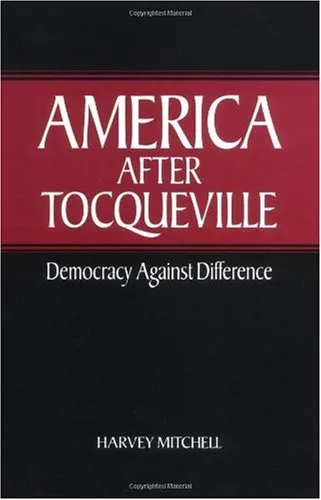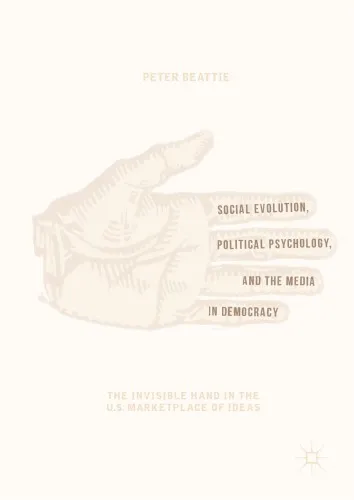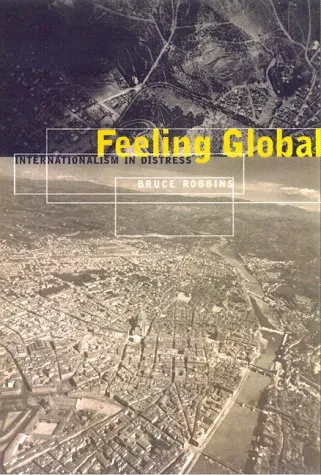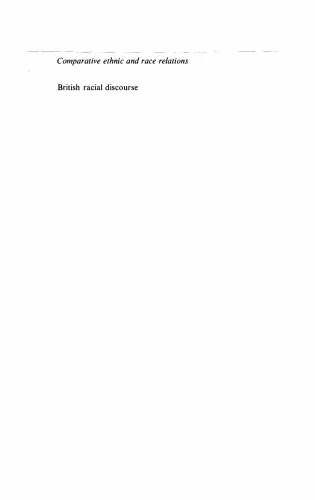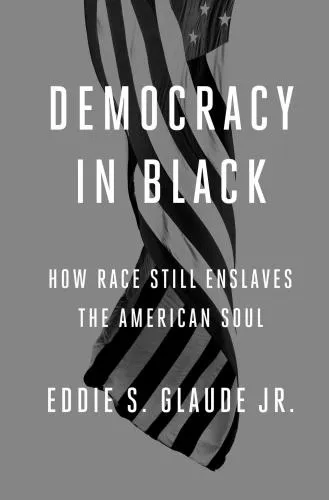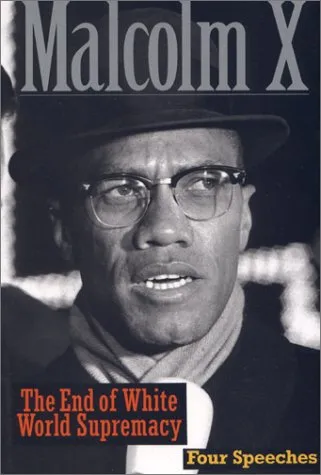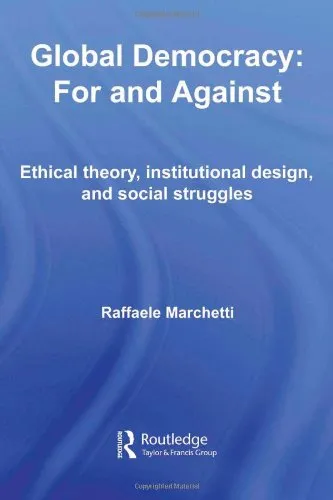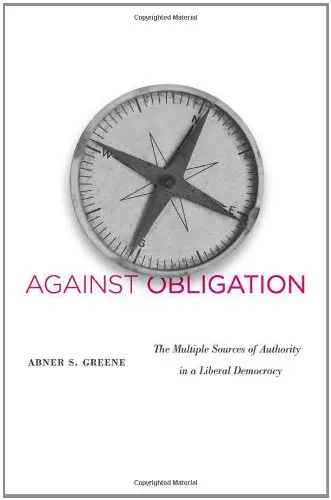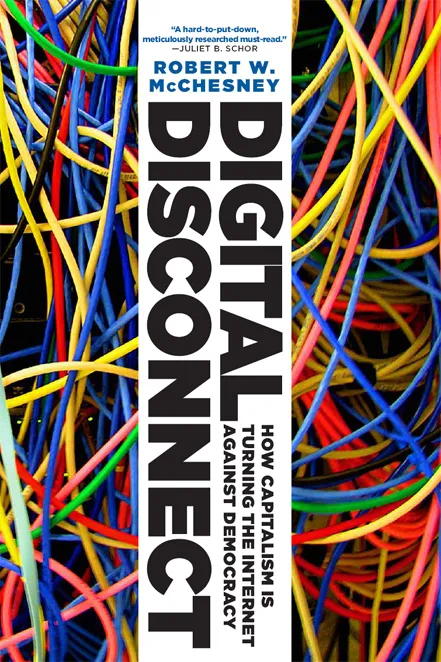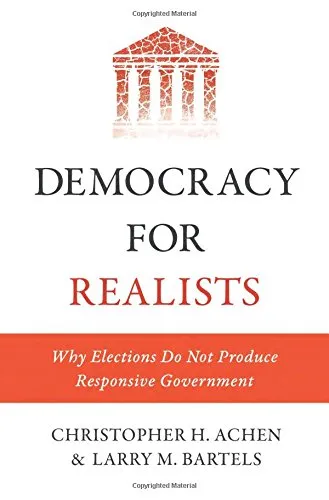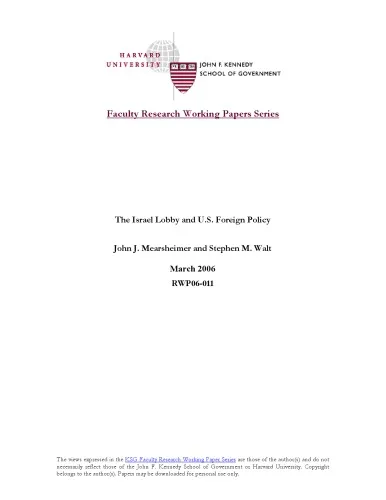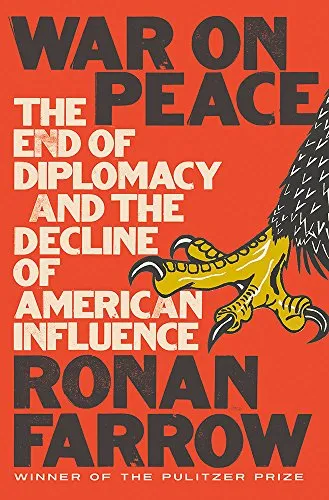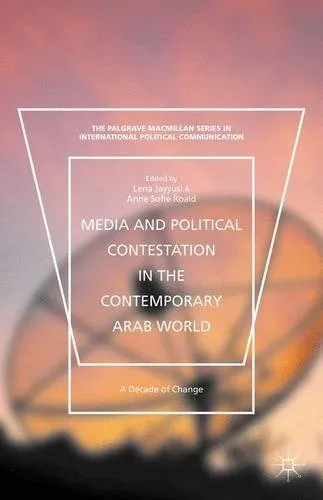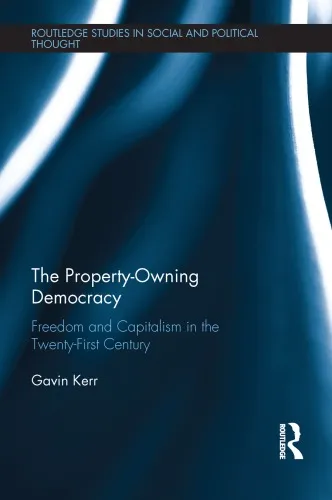America after Tocqueville: Democracy against Difference
4.0
بر اساس نظر کاربران

شما میتونید سوالاتتون در باره کتاب رو از هوش مصنوعیش بعد از ورود بپرسید
هر دانلود یا پرسش از هوش مصنوعی 2 امتیاز لازم دارد، برای بدست آوردن امتیاز رایگان، به صفحه ی راهنمای امتیازات سر بزنید و یک سری کار ارزشمند انجام بدینکتاب های مرتبط:
معرفی کتاب: آمریکا پس از Tocqueville: Democracy against Difference
کتاب America after Tocqueville: Democracy against Difference نوشته هاروی میچل، روایتی بسیار دقیق و ژرفکاوانه از مفاهیم دموکراسی، تنوع فرهنگی، و پویاییهای اجتماعی در ایالات متحده ارائه میدهد. این کتاب به بررسی ایدههای الکسی دو توکویل درباره دموکراسی و اینکه چگونه ایالات متحده با مواجهه با تفاوتها و تنوعهای فرهنگی در طول تاریخ مدرن خود به چالش کشیده شده است، میپردازد.
هدف نویسنده در این اثر تحلیل و بازاندیشی در روایتهای غالب دموکراسی در آمریکا در مقابل مفهوم «تفاوت» (Difference) است و اینکه چگونه اصول دموکراتیک ممکن است در برخورد با این تفاوتها با محدودیتهایی مواجه شوند. این کتاب با استفاده از مطالعات تاریخی و گفتمانهای اجتماعی، خواننده را به تفکر در مورد سؤالات بنیادی در مورد ماهیت دموکراسی در عصری که به طور فزایندهای چندفرهنگی است، تشویق میکند.
خلاصهای از کتاب
در این اثر، هاروی میچل از منظر دیدگاههای فلسفی و تاریخی، افکار متفاوت را تحلیل میکند و به موضوعاتی مانند برابری اجتماعی، تنوع فرهنگی و مفهوم شهروندی در جامعه آمریکا میپردازد. او به بررسی این پرسش میپردازد که آیا دموکراسی آمریکایی واقعاً میتواند به عنوان مدلی برای تطبیق تفاوتهای بیپایان و همزمان ایجاد همگرایی در میان چنین تنوع فرهنگی گستردهای عمل کند؟
میچل با تحلیل آثار توکویل، به نقد چالشهای موجود در جریان تطابق دموکراسی با تراکم تنوع اجتماعی میپردازد. او همچنین چگونگی مواجهه جامعه با این چالشها و پتانسیلها و محدودیتهای دموکراسی برای ایجاد یک محیط یکپارچه ولی متنوع را توضیح میدهد. مفاهیم کلیدی همچون آزادی فردی، حقوق برابر، و حاکمیت اکثریت نقشی محوری در بحثورزی او ایفا میکنند.
نکات کلیدی
- تحلیل مفهوم Democracy در متن مدرن و چندفرهنگی.
- تفاوت بین دیدگاه کلاسیک توکویل و دموکراسی معاصر.
- چالشهای همزیستی عدالت اجتماعی با تفاوتهای فرهنگی در مدل آمریکایی.
- تأکید بر اهمیت تاریخی و فلسفی تفاوت در نظریه دموکراسی.
- پرسشهای بنیادین درباره امکان یکپارچگی بدون حذف تفاوتها.
جملات معروف از کتاب
«دموکراسی، بیش از هر چیز، بستری برای پذیرش تفاوتها است، اما همین تفاوتها میتواند ماهیت اصلی آن را به چالش بکشد.»
«در جهانی که در هر گوشه از آن تنوع بیداد میکند، دموکراسی باید نه تنها به عنوان یک سیستم سیاسی، بلکه به عنوان یک روش زندگی بازاندیشی شود.»
چرا این کتاب مهم است؟
کتاب America after Tocqueville به دلیل پرداختن به یکی از موضوعات بحرانی قرن بیست و یکم، یعنی سازگاری دموکراسی با تنوع فرهنگی و اجتماعی، از اهمیت قابل توجهی برخوردار است. نویسنده با دقت نظری و توجه به سوابق تاریخی و ایدههای فلسفی، توانسته است پلی میان گذشته و مسائل معاصر بسازد. از این رو، این اثر تنها یک تحلیل تاریخی نیست، بلکه راهنمایی برای مطالعه و درک بهتر آینده جوامع دموکراتیک در مواجهه با تغییرات ناگهانی و چندگانگیها است.
اگر به ماهیت دموکراسی، تاریخچه آن در آمریکا، و چگونگی تعامل با تفاوتهای فرهنگی علاقهمند هستید، این کتاب میتواند نقطه شروع بسیار مناسبی باشد. این کتاب به ویژه برای دانشجویان، محققان، و علاقهمندان به علوم سیاسی، مطالعات فرهنگی و فلسفه سیاسی به شدت توصیه میشود.
Introduction to "America after Tocqueville: Democracy against Difference"
"America after Tocqueville: Democracy against Difference" is a compelling scholarly work that examines the profound dynamics of democracy in the United States, as shaped by Alexis de Tocqueville’s observations and transcending them to reflect modern challenges. Written by Harvey Mitchell, the book dives deep into the delicate balance between democratic ideals and cultural or social differences. This analytical text discusses how America has navigated the tension between unity and pluralism, ultimately exploring the consequences and contradictions of democracy in a diverse society.
Detailed Summary
At its heart, "America after Tocqueville" attempts to answer a critical question: how has American democracy evolved in handling differences—from race and culture to ideology and identity—since Tocqueville's foundational study? Harvey Mitchell revisits Tocqueville’s core assertions: democracy’s promise of equality and its potential threats to individuality and diversity. He argues that the democratic system, while inherently designed to bridge differences, paradoxically creates conditions that can exacerbate divisions.
Using historical analysis and philosophical critique, the book explores how the ideals of democracy foster a collective identity, sometimes at the expense of marginalized groups and their particularities. Mitchell contends that the modern democratic state, while striving for inclusivity, often stumbles into a homogenizing ethos—discouraging "difference" in favor of "sameness." The book weaves together themes of nationalism, political representation, cultural assimilation, and civil rights as it reflects on America's ongoing journey toward achieving true equality.
Through detailed arguments, Mitchell suggests that Tocqueville’s warnings about the fading of individuality in favor of majority rule remain pertinent today, especially in the context of modern political polarization and cultural debates. The work doesn’t just analyze the past but deeply engages with contemporary issues, leaving readers with profound insights into the challenges democracies face in negotiating difference within an increasingly interconnected and fragmented world.
Key Takeaways
- Tocqueville’s insights into democracy remain highly relevant in understanding America’s modern challenges with diversity and equality.
- Democracy, though founded on the principle of equal representation, often struggles to reconcile the tension between unity and cultural differentiation.
- The evolution of America's democracy highlights a paradox: the push for inclusiveness sometimes results in exclusionary practices.
- Pluralism is both a strength and a challenge for democratic systems, as it requires constant negotiation between majority rule and minority rights.
- Harvey Mitchell calls for deeper self-reflection in democratic societies to genuinely embrace and celebrate differences rather than superficially coexist with them.
Famous Quotes from the Book
"Democracy is an ever-elusive balance between the ideal of equality and the reality of difference."
"In the pursuit of unity, democratic societies must guard against the erasure of the very differences that they claim to protect."
"Tocqueville foresaw democracy’s great triumphs, but also its most daunting challenges—in America, these remain unresolved."
Why This Book Matters
"America after Tocqueville: Democracy against Difference" is a significant contribution to political theory and American history. At a time when cultural and political debates increasingly dominate public discourse, the book provides a vital lens to view current affairs through the broader context of democracy's evolution. Mitchell’s work transcends a simple historical analysis, offering readers tools to critically evaluate the foundations of democratic governance and its role in fostering inclusivity while navigating complex differences.
Its relevance extends beyond academic circles, speaking to political leaders, social activists, and everyday citizens who grapple with questions about unity, pluralism, and equality in a rapidly changing world. The book challenges us to rethink not only the meaning of democracy but also the responsibility we bear in shaping it for future generations. It serves as a thought-provoking guide for those seeking to build bridges across divides rather than deepening them further, making it an indispensable read for our time.
دانلود رایگان مستقیم
شما میتونید سوالاتتون در باره کتاب رو از هوش مصنوعیش بعد از ورود بپرسید
دسترسی به کتابها از طریق پلتفرمهای قانونی و کتابخانههای عمومی نه تنها از حقوق نویسندگان و ناشران حمایت میکند، بلکه به پایداری فرهنگ کتابخوانی نیز کمک میرساند. پیش از دانلود، لحظهای به بررسی این گزینهها فکر کنید.
این کتاب رو در پلتفرم های دیگه ببینید
WorldCat به شما کمک میکنه تا کتاب ها رو در کتابخانه های سراسر دنیا پیدا کنید
امتیازها، نظرات تخصصی و صحبت ها درباره کتاب را در Goodreads ببینید
کتابهای کمیاب یا دست دوم را در AbeBooks پیدا کنید و بخرید
1493
بازدید4.0
امتیاز0
نظر98%
رضایتنظرات:
4.0
بر اساس 0 نظر کاربران
Questions & Answers
Ask questions about this book or help others by answering
No questions yet. Be the first to ask!
